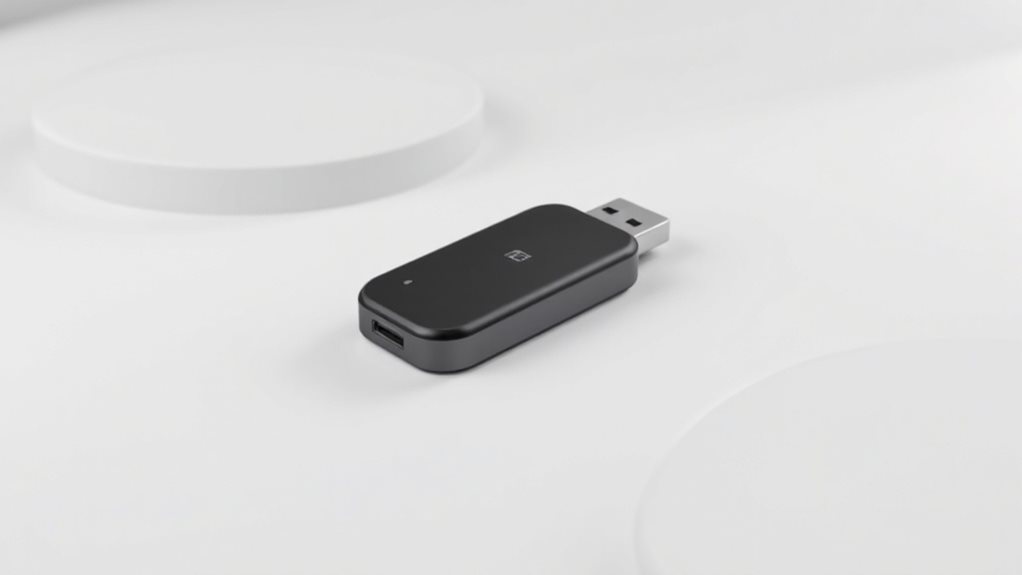A hardware wallet is a secure physical device, similar to a USB stick, that stores cryptocurrency offline. It protects digital assets by keeping private keys away from internet-connected devices, making them immune to online threats and hackers. These wallets require a PIN code for access and can store multiple types of cryptocurrency. While they're less convenient than software wallets, they offer enhanced security features that make them vital tools for serious crypto investors.

A hardware wallet serves as a physical vault for cryptocurrency, storing digital assets offline and away from potential online threats. It's a small device that looks similar to a USB stick and provides enhanced security compared to software wallets that run on computers or smartphones. These devices are specifically designed to keep private keys, which are like secret passwords that control access to cryptocurrency, completely isolated from internet-connected devices. The durable construction quality of hardware wallets from established brands ensures longevity and reliability. Users must carefully review transaction details on the device's display to prevent irreversible transaction errors caused by malicious address-swapping attacks.
The security features of hardware wallets make them particularly effective at protecting cryptocurrency. They store private keys in a secure chip and require users to enter a PIN code to access the device. Most hardware wallets use open-source software to ensure transparency and allow users to verify the security of their devices. If someone loses their hardware wallet, they can recover their funds using a special backup phrase, often called a recovery seed. The devices also come with firmware signing, which prevents attackers from tampering with the wallet's software, and physical security measures that make it difficult to break into the device.
When users want to send cryptocurrency, they need to physically connect their hardware wallet to a computer using USB, Bluetooth, or by scanning QR codes. The device works with special software called a crypto bridge to interact with the blockchain. What makes hardware wallets special is that they sign transactions inside the device itself, so the private keys never leave the secure environment. Most hardware wallets can handle multiple types of cryptocurrency, though the exact number varies depending on the model. Popular manufacturers like Ledger and Trezor dominate the hardware wallet market with their secure solutions.
Hardware wallets offer several benefits but also come with some limitations. They're immune to computer viruses and online threats that often target software wallets, and they give users complete control over their private keys. However, they're more expensive than software wallets, typically costing between $40 and $200. They might also have fewer features compared to software wallets, and they're not as convenient for people who need to make frequent trades or transactions.
The technology behind hardware wallets represents a significant advancement in cryptocurrency security. By keeping private keys offline in what's known as "cold storage," these devices provide a secure solution for long-term cryptocurrency holdings. While they might require a bigger upfront investment and take some time to get used to, hardware wallets have become an important tool in the cryptocurrency ecosystem, particularly for those who prioritize security over convenience.
Frequently Asked Questions
Can I Recover My Crypto if I Lose My Hardware Wallet?
Yes, crypto can be recovered if someone loses their hardware wallet.
It's possible by using the recovery phrase that was created during the wallet's setup. The recovery phrase is a set of 12-24 words that works like a backup key.
The owner can buy a new hardware wallet and enter these words to restore access to their crypto. Without this phrase, though, the crypto can't be recovered.
How Much Do Hardware Wallets Typically Cost?
Hardware wallets come in different price ranges to fit various budgets.
Entry-level models like the Trezor Model One and SafePal S1 typically cost between $50-$80.
Mid-range options, including the Ledger Nano X and ELLIPAL Titan, usually run from $100-$150.
High-end wallets like the Ledger Stax and NGRAVE ZERO can cost anywhere from $200-$400.
Prices often reflect features like screen quality, connectivity options, and security capabilities.
Which Cryptocurrencies Are Supported by Hardware Wallets?
Hardware wallets support a wide range of cryptocurrencies. Popular ones like Bitcoin and Ethereum are universally supported.
Most wallets also handle Ripple, Litecoin, and Cardano. The Ledger Nano X supports over 1,100 coins, while SafePal can handle more than 10,000.
They typically support major stablecoins like USDT and USDC, plus various tokens on different blockchains. Support for newer cryptocurrencies like Solana is growing steadily.
Is It Safe to Buy a Used Hardware Wallet?
Buying a used hardware wallet isn't safe and comes with serious risks.
These devices could be tampered with, have malware installed, or be compromised by previous owners.
There's also no way to be sure if someone else has kept the recovery seed.
Used wallets don't come with manufacturer warranties or support.
The previous owner might have stored the device improperly, causing physical damage or wear that could affect its reliability.
Can Hardware Wallets Be Hacked Through Bluetooth or USB Connections?
Hardware wallets can be vulnerable through Bluetooth and USB connections, but manufacturers have built in strong security measures.
Both connection types have potential risks like eavesdropping or malware attacks. However, critical data like private keys isn't transmitted over Bluetooth, and transactions require physical button confirmation.
The wallets' Secure Element chips add protection against hacking attempts. Users can also choose to disable Bluetooth completely.





